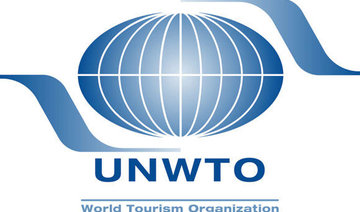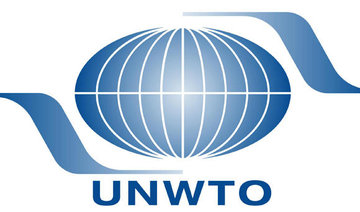RIYADH: President of the Saudi Commission for Tourism and National Heritage (SCTH) Prince Sultan bin Salman will lead the Saudi delegation at the 106th session of the Executive Council of the UN World Tourism Organization (UNWTO) in China.
The UNWTO will honor Prince Sultan for his exemplary support of global tourism and innovative initiatives to promote tourism in the Kingdom.
The 106th session of the Executive Council comes within the functions of the 22nd session of the General Assembly of the UNWTO, scheduled to open in Chengdu, the Peoples Republic of China, today.
More than 1,100 ministers and officials, representing 132 countries, will attend the event to discuss issues related to tourism in the world.
In press remarks, Prince Sultan appreciated the role and efforts of the UNWTO in removing obstacles facing tourism in the world and boosting cooperation and joint work to allow tourism to achieve successive leaps.
Evidence of the success of the UNWTO is that it has managed to bring all officials together in one place to exchange views and ideas to make tourism more active, he said.
He affirmed that the UNWTO has reached the highest level of professionalism in its works, projects and plans, especially during the past eight years.
For his part, the secretary-general of the UNWTO, Talib Al-Rifai, said the meeting represents a unique opportunity to bring sector officials together on a joint objective which aims to make tourism a real driver to sustainable development and determine steps of the UNWTO for 2018-2019.
He said the general assembly will give them a chance in making key decisions working as a guide to make a balanced contribution in the future of our planet and its population. “Therefore, we have to invest this opportunity to allow tourism sector to play its roles in development, economy and coexistence between peoples and countries,” he said.
The 22nd session of the UNWTO General Assembly is the second to be hosted by China and the fourth in the Asia and Pacific region. In this context, Al-Rifai said China is not only the fourth biggest tourism receiving country, but it stands as a model country that gives priority to tourism as an engine for the development wheel.
On the other hand, the UNWTO General Assembly will discuss a number of topics, notably tourism and objectives of sustainable development, smart tourism, the current tourism trends, and conversion of the global code of tourism ethics into an international agreement.
UNWTO to honor Prince Sultan for innovative tourism initiatives in Saudi Arabia
UNWTO to honor Prince Sultan for innovative tourism initiatives in Saudi Arabia

KSrelief distributes cartons of dates in Jundiai, Brazil

- The center distributed 1,480 food baskets to the displaced and other vulnerable groups, including persons with disabilities, women, and the elderly, in Kassala State in Sudan, benefiting 10,360 individuals, representing 1,480 families
JUNDIAI: The King Salman Humanitarian Aid and Relief Center has distributed 1,600 cartons of dates in Jundiai, Sao Paulo, Brazil, benefiting 200 families, including host community members, refugees, and immigrants. This initiative is part of a project to distribute 200 tonnes of dates in Brazil in 2026.
The center also distributed 1,504 cartons of dates to the most vulnerable families in Brazil’s Mogi das Cruzes, benefiting 188 families from the host community, refugees, and migrants, as part of a project to distribute 200 tonnes of dates in the Latin American country.
This initiative is part of the many relief and humanitarian projects provided by the Kingdom through its humanitarian arm, KSrelief, to support those affected by disasters worldwide.
Elsewhere, the center distributed 1,480 food baskets to the displaced and other vulnerable groups, including persons with disabilities, women, and the elderly, in Kassala State in Sudan, benefiting 10,360 individuals, representing 1,480 families.














